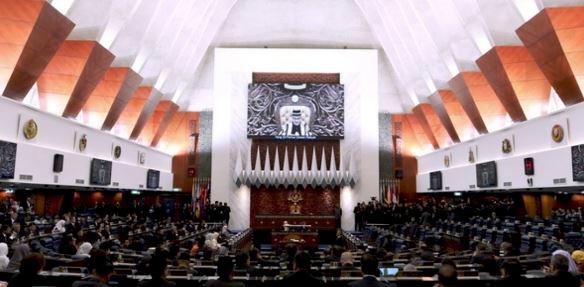KUALA LUMPUR: The debate session on the White Paper on Covid-19 Vaccine Procurement Management in the Dewan Rakyat today witnessed government and opposition MPs had differing views on the vaccine procurement process when the country was hit by the global pandemic in 2019.
Government MPs wanted the procurement process to be more transparent and called for a clearer standard operating procedure (SOP) for the purchase of vaccines for infectious diseases to be used as a guide if the country is faced with a similar situation in the future.
Yeoh Bee Yin (PH-Puchong) said the delay in procuring vaccine supplies was one of the weaknesses of the National Covid-19 Immunisation Programme (PICK) implemented in February 2021.
“The Malaysian government’s first agreement with Pfizer to secure 12.8 million doses of the vaccine was signed only on Nov 27, 2020...the National Pharmaceutical Regulatory Agency (NPRA) initially needed 90 to 120 days to approve the vaccine.
“I suggest that a new SOP be prepared based on this experience so that new vaccines for infectious diseases that are at risk of becoming a pandemic can be approved more quickly in the future,“ she said.
RSN Rayer (PH-Jelutong) raised the question of whether the country was facing financial constraints at the time, causing Malaysia to obtain the Covid-19 vaccine supplies 60 days later than other Asian countries.
Dr Mohammed Taufiq Johari (PH-Sungai Petani) said the amount of the procurement did not tally with the vaccination rate which proved that there was a waste of public funds, adding reports were saying six million unused vaccines had expired.
He also highlighted that the vaccination rate for Covid-19 booster doses was much lower than the rate projected by the government.
Meanwhile, the opposition MPs said that the government took a long time to procure the vaccine supplies because it was facing financial difficulties, while at the same time, it wanted to ensure the effectiveness of the new vaccine.
Datuk Ahmad Amzad Mohamed@Hashim (PN-Kuala Terengganu) said there was no vaccine procurement procedure without the approval of the NPRA in place which contributed to the delay.
“At the beginning of the pandemic, not a single (vaccine) was approved by the WHO (World Health Organisation), it was still in the research phase.
“It was a huge risk because we are not like other countries that can invest a lot of money to secure vaccines whose effectiveness and safety were not yet known,“ he said.
Datuk Dr Alias Razak (PN-Kuala Nerus) suggested that the government reduce dependence on the procurement of vaccines from foreign countries by increasing the development of international-standard vaccines in the country as a preparation to face the possibility of similar outbreaks in the future.
Earlier, Deputy Health Minister Lukanisman Awang Sauni when tabling the White Paper explained the procurement process for the Covid-19 vaccine doses from 2020 to 2023 took into account several key points including the source of procurement implementation authority, procurement methods and exemptions from existing procurement procedures.
“This White Paper, among other things, touches on key matters such as the source of authority for the procurement of the Covid-19 vaccine, the monitoring of vaccine delivery and receipt schedules, the Vaccine Management System (VMS), the method of vaccine procurement and the Public Accounts Committee (PAC) findings,“ he said.
The sitting continues on Monday. - Bernama










